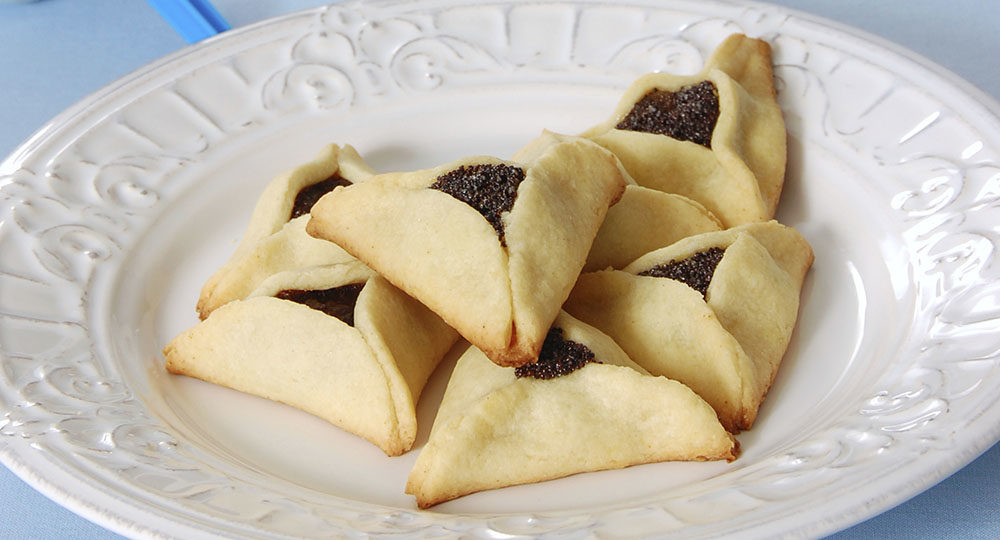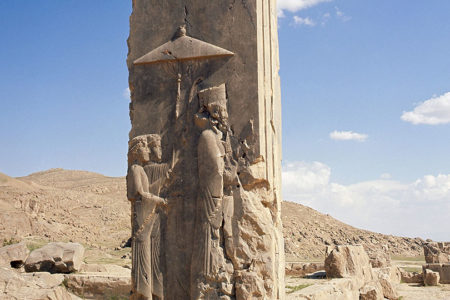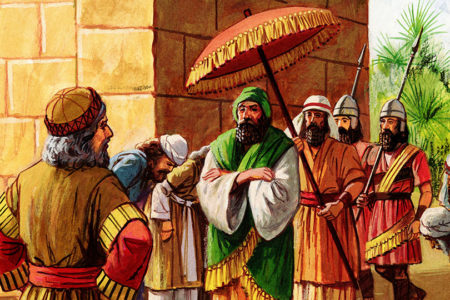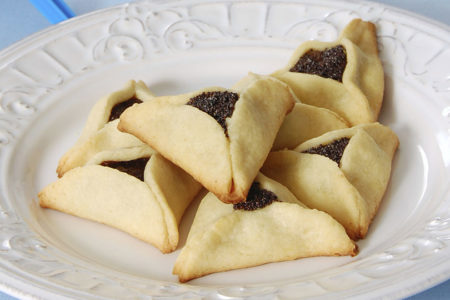The Holiday of Purim
What holiday has a carnival-like atmosphere where people dance in the streets and ride on floats while dressed in costumes? What holiday has special foods, gifts, plays, songs, and noisemakers? It isn’t Halloween, Thanksgiving, or Christmas. Only the Jewish celebration of Purim has all of these elements in a single holiday.
Purim is a joyous time that commemorates the Jewish people’s deliverance in the ancient Persian Empire from Haman’s evil plot of destruction. On the Jewish calendar, it is celebrated each year on the 14th day of the Hebrew month of Adar. This year the holiday begins at sundown on March 7 and ends at sundown on March 8.
Like Hanukkah, Purim is more a national than religious festival; and unlike the holy days ordained in the Torah, Purim permits business as usual and manual labor.
Perhaps that’s because it was not ordained by God but by Mordecai and Esther, as recorded in the book of Esther:
And Mordecai wrote these things and sent letters to all the Jews, near and far, who were in all the provinces of King Ahasuerus, to establish among them that they should celebrate yearly the fourteenth and fifteenth days of the month of Adar, as the days on which the Jews had rest from their enemies, as the month which was turned from sorrow to joy for them. So they called these days Purim (9:20–22, 26).
The word Purim itself comes from the Hebrew word pur, meaning “lot” (3:7), because lots were cast to determine the day the Jews would be destroyed.
On Purim it is customary to observe several mitzvot (“obligations” or “commandments”). One involves reciting a special prayer called “For the Miracles.” Another is to read the scroll (Hebrew, megillah) of Esther. When Haman’s name is heard, listeners stamp their feet and use noisemakers (usually handed out in the synagogues to children) to drown out the sound of his name, based on Deuteronomy 25:19: “You will blot out the remembrance of Amalek.” Many people believe Haman was an Amalekite.
In America, children particularly enjoy this fun holiday and often present dramas of the story of Esther, complete with costumes and masks. According to the website unitedwithisrael.org,
Esther’s name in Hebrew means “hidden,” as in “And I will surely hide (“as-thir”) My face on that day. . .” (Deuteronomy 31:18). And that is why Jewish children (and adults too!) “hide” their faces by wearing masks and dressing up in all sorts of costumes. The message is clear: God may be hidden but we know that He is there! 1
Another Purim mitzvah is “sending presents to one another and gifts to the poor” (Est. 9:22). In Hebrew the tradition is called Mishloach Manot and involves giving both food and charitable donations. Often people send Purim baskets—gift baskets filled with wonderful things like nuts; grape juice; candy; fruit; and hamantashen, delicious three-cornered, fruit-filled pastries named after Haman’s hat.
More recently in the United States and in Israel, organizations honor the holiday by sending baskets and gifts to soldiers in the Israeli military.
Purim in Israel
Although Purim is celebrated in the West, it is celebrated on a far greater scale in Israel. Teenagers dominate the scene, streaming through the streets in carnival-like parades and on decorated floats. Everyone gets into the act. A young woman in Tel Aviv described what Purim was like for her last year: “[I heard] noise on the streets—people yelling, screaming, celebrating, loud firecrackers going off—even when I was in the house. . . . The place was crowded with costumes— pirates, bumblebees, a caveman, Lady Gaga, flappers, and more.”2
However, for the young at heart, like the elderly at Yad LaKashish, a nonprofit orga – nization in Jerusalem that supports older residents and provides them with creative jobs, Purim is as joyous as ever:
Purim at Yad LaKashish this year was as colorful, musical and joyful as ever, thanks to hordes of visitors who came to make merry with the elderly artisans. Jerusalem celebrates Purim a day later than everyone else, and so we took the opportunity to double the festive fun with two days of costumes, singing, dancing and mishloach manot. We distributed the traditional hamentaschen and candy to all 300 elderly artisans alongside their regular morning snack, and this was supplemented by some extra goodies.3
The Traditional Foods
On the 13th of Adar, some observe the fast of Esther (Est. 9:31–32). Then the feasting begins, and no festive holiday would be complete without traditional foods. Popular among Polish Jews is a big challah bread with raisins, called Koilitch. Besides hamantashen, seeds and nuts are also Purim fare. The Talmud claims Esther ate only seeds and nuts in the palace, as she had no access to kosher food.
Other delicacies include kreplach—meat-, chicken-, or liver-filled dumplings served in soup. The meat hidden in the dumpling is considered another reminder of how God seems hidden in the book of Esther but is there with His people always. Jews of Hungarian and Romanian descent serve a dessert of fried dough balls and vanilla custard. Moroccan Jews eat a bread called Ojos de Haman (“Haman’s eyes”).
Yet another Purim mitzvah is to eat a special meal (seudat Purim), usually in the afternoon after prayer services (minchah). Holiday candles are lit, and a blessing called Kiddush is recited before eating. Since the holiday revolves around Jewish salvation from physical destruction, there is much physical activity, such as singing, dancing, eating, and drinking.
Many Jewish holidays are solemn remembrances, but Purim is a joyous time of celebration, commemorating how God again saved His people:
“The eternal God is your refuge, and underneath are the everlasting arms; He will thrust out the enemy from before you, and will say, ‘Destroy!’ Happy are you, O Israel! Who is like you, a people saved by the LORD” (Dt. 33:27, 29).
ENDNOTES
- “Why Is God’s Name Hidden?” United With Israel <unitedwithisrael.org/idf-purim-baskets>.
- Simona, “My Purim Costume[s],” Fashion Israel <fashionisrael.wordpress.com/2010/03/my-purim-costumes>.
- “Purim Celebrations,” Yad LaKashish <tinyurl.com/PurimIsrael>.






